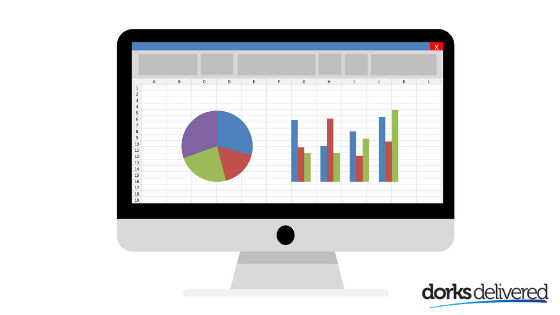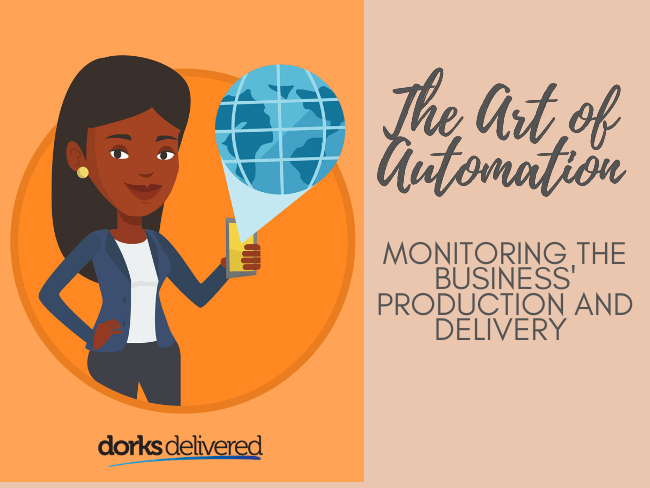How to Avoid the Biggest Cash Flow Mistake That Can Put a Company Out of Business
Business is all about managing risk and making tactical decisions. As a business owner, you are well aware that your decisions will have an impact on your finances. Handling both the running of the company and its finance is no walk in the park. Both these jobs require full attention. Yet, in spite of their best efforts, most new companies fold because they were unable to handle their cash flow judiciously. At this stage, it would be advisable to know about common cash flow management mistakes that can put a company out of business. Knowing about these mistakes will help you avoid them.
Biggest Cash Flow Mistakes and How to Avoid Them
If you know what to look out for, it is easy to prevent yourself from making errors. In order to assist you, here is a list of common small business cash flow mistakes and the ways in which these can be avoided.
1. Risk Concentration
When you are doing anything in business, you cannot pool all your resources in just one thing. There has to be a distribution of risk. In terms of payout, a high-risk investment has a higher rate of payout. Similarly, a low-risk investment will pay less. This does not mean that you always invest in those products or activities where the risk is high. A wise decision would be to evenly distribute the risk. This way even if there is a loss in one avenue you will still have something to fall back on.
2. Not Planning For Future

Always look at the big picture. You have to take the responsibility to plan for the future. Nothing ever goes completely to plan. Live in your comfort zone financially, give yourself a bubble safety net, a reserve for unforeseen events. Your reserve could be very different to mine, you might be fine working with a week or month of a financial buffer, while others could become uncomfortable with less than a year. Planning for the future will give you insight into how to handle your finances today so that you have sufficient savings for tomorrow. In a business environment, the needs of the customers and technology keep changing.
In order to keep up with all these changes, you need to plan your small business cash flow. If you don’t plan for the future your business will be ill-equipped to handle even the expected challenges. Always plan in advance and bring in change where necessary.
3. Forcing Growth
Obviously, you want your business to grow. Expansion happens as your products gain more popularity and their demand increases. You need more people, space and machines to keep up with the increasing work. Now, starting out big will increase your overhead and your earnings might not be large enough to cover it all. Try not to force growth upon your business. Expand it as and when the situation dictates, even then, do it slowly and steadily. Don’t go out with all cylinders fired, only look to expand in those areas where it is actually needed. One of the things that nearly killed Dorks Delivered was growth. We became way too big way too fast and didn’t have the processes in place to handle it.
Saying no to a big customer won’t kill your business, in certain circumstances saying yes can. Automation can help you redistribute resources without employing more. In any business’s downtime you should be looking at expansion from an automation point of view. An all out growth plan, if forced, can destroy a business.
4. Unplanned Hiring
In every business there is frequent hiring. Sometimes this happens in order to fill in the position left vacant by those who retire or get promoted. Other times hiring is necessary to keep up with job jumpers or to meet the needs of an expanding business. Whatever the reason for hiring it has to be planned out properly. Hiring the wrong candidate is an expensive mistake that affects your bottom line and can take up many hours between hiring and training. It is not just about the salary, hiring means advertising the vacancy, organizing the candidates into different preferences, setting up interviews etc. All this takes time and eats into your cash reserves.
When you can plan for your hiring you will get you the best candidates with minimum expense.
5. Inventory Stockpile
It is always good to have a little inventory. However, keeping around old obsolete crap makes no sense. Your inventory needs to be kept to the basic minimum to ensure there is no business interruption. Anything over this is a waste of money for the inventory, and a waste of valuable real estate in the space it takes up, normally a huge expense. Every item in the inventory occupies space and you are paying for it. If freed up, this space can be used to hold other necessary items. You could even lease out the free space. Rule here is inventory needs to be monitored.
6. Not Measuring Results
Measuring the performance of your company against the business metrics set up by you or the industries you belong to is necessary. This gives you an idea of how well or how not so well your business is performing. You can also identify those areas that need more attention. As you improve your processes, the cost of operation will come down. Sometimes, rectifying a procedural mistake can also free up cash. You can only identify money eating errors if you measure the results. Don’t crack open a beer and celebrate until you have data to prove that you are actually doing well.
7. Forgetting About Expenses
Every business has expenses. Some are fixed like salary to employees and rent of the building, while others are variable like wear and tear, taxes and inflation. You have to try and predict them all and make adequate provision for them in your budget. You cannot invest all your cash in any activity without thinking of how you plan to meet your expenses. Careful thought and market analysis will allow you to make a fair forecast.
8. Being Too Optimistic in Predictions

Now that we are talking about forecasting, predicting and budgeting, it’s time to curb the enthusiasm. While doing any of these activities study previous business and industry trends. Compare your company’s performance against them and once done see where you stand. Using this information make realistic predictions. Don’t make the mistake of living in a bubble and being overly optimistic.
9. Not Consulting Financial Professionals
When it comes to finances, nobody else knows the job better than financial professionals. Consult a financial professional them when making big financial decisions. They can help you plan better. They can also assist you in making profitable investments. It could be something as straight forward as a government incentive or a tax break. Doing everything on your own is not good for the health of your business.
The Final Word
A few simple and practical steps are all you need to maintain a healthy cash flow management plan. Give special attention to small things like financial planning and your credit score. Always have a keen eye and see what is happening around you. Study industry trends and diversify where necessary. This way you will be able to spread your risk. Finally, use good accounting software to stay on top of your finances, we are not your financial advisors, but find that Xero works great for most businesses.

Contact a CHB Leader in Managed IT Support to learn more about IT outsourcing and other IT security solutions for your business.
Do you want to receive quality content about technology, business growth, life and mental health every week?
[module-377]










